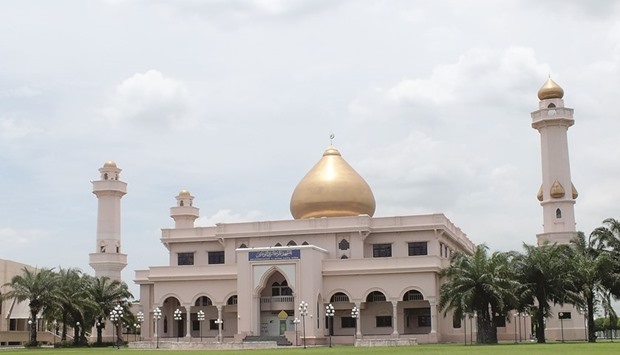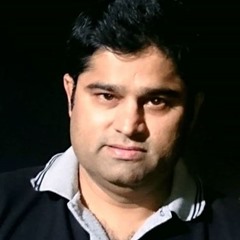The Muslim connect remains a less explored subject and one that holds
a special interest in the context of growing ‘Islamic tourism’, Thailand’s
halal industry expertise and, last but not least, medical tourism.
Kamran Rehmat reports from the Land of Smiles
The jury is still out on exactly how many muscles it takes to smile, and frown, and which one pips the other. In Thailand, regardless of the muscle tussle, smiles take the miles!
No wonder, it’s dubbed the Land of Smiles.
It is hard not to wilt with that constant appearance wherever you go — right from the immigration desk out to the market place.
While there’s little that has escaped the roving eye of a keen traveller to Bangkok or the more popular tourist resorts in terms of their allure, there is this other — more formal — side to the Thai kaleidoscope that held its attention for me on a recent study tour to the country.
It should be of particular interest to travellers from the Middle East, and closer home, the Gulf.
The Muslim connect remains a less explored subject and one that holds a special interest in the context of growing “Islamic tourism”, Thailand’s halal industry expertise and last, but not least, medical tourism.
Sek Wannamethee, Director-General, Department of Information, Ministry of Foreign Affairs, puts liberty and tranquillity at the heart of Thai societal fabric.
“The peaceful essence of Islam coincides with Buddhist teachings. In Thailand today, Islamic teachings and prayers are broadcast on Thai television network. The Azaan can be heard from as far away in the north, through the central plains of (the former capital) Ayutthaya all the way to the south, where Islamic family law is practised,” he says.
It says a lot about the high values Thais place on tolerance and religious harmony when you consider that the very term “minority” is abhorred. The idea is to accord the same level of recognition to all religions and ethnicities.
Sheikhul Islam
“Muslims enjoy full liberties and rights in our country, and it is all constitutionally mandated,” Assistant Professor Dr Abdullah Numsuk, Representative of the Sheikhul Islam, says.
Outlining the salient features of state backing, he informs that under constitutional obligation, the monarch has to lend his support to every religion and that is also reflective in his continued patronage of Islamic activities in Thailand.
“The king has an important role in supporting Islam and has authorised translation of the Holy Book into several languages at state expense. He is a regular presence in our midst,” he points out.
“We have the Islamic Bank of Thailand (a state enterprise with 26 branches across the country), and a dedicated 24-hour cable TV, which should say something about the rights we enjoy in this land,” Sheikhul Islam’s representative emphasises.
Explaining the raison d’etre of the office, the representative says it is the highest Islamic authority in the land whose decisions are binding for all Muslims. The appointment is made by the king himself and it follows an intense participatory process with 39 provincial committees across the country involved in the selection.
He is also sanguine about the role played by Muslims in the country’s development.
“Our fellow brethren continue to contribute meaningfully to nation-building. There is exemplary coexistence amongst various religions and even sects of Islam here. Indeed, we remain very proud of being Thai citizens,” Numsuk says, emphatically.
Responding to a question about the number of mosques in Thailand and how and where Muslim children acquire religious education, he puts the number at 3,700 — majority of these in the south — and says they learn at Islamic schools run by Muslims, but also private educational institutions. The Islamic schools are also subsidised by the government.
According to a Ministry of Thailand estimate, there are 800 Islamic schools in the country, most of which are concentrated in the southern border provinces.
The Foreign (Office) factor
Like with other countries, the Thai government is reaching out to expand the relationship with the Islamic world, particularly the Gulf. There is a strong Muslim connect here which has perhaps, not been explored enough for its range and depth.
Suvat Chirapant, Deputy Permanent Secretary at the Ministry of Foreign Affairs — one of four such high ranking positions in the ministry — is himself a Muslim and informs that Thailand has had a foreign minister, who served as the secretary-general of Asean; parliamentary speaker, who was also the deputy prime minister and interior minister; and even a commander-in-chief of the army from the same faith.
He says the country, which has the highest Muslim population of all Asean countries, has much to offer to potential trade partners in the Middle East and Gulf — not in the least trade in its certified halal food industry. With its significant Muslim population (approximately, 5.8 million of the nation’s 67 million), Thailand also sits on the Organisation of Islamic States (OIC) with an Observer Status, enjoying observer membership of the Islamic Education, Scientific and Cultural Organisation (ISESCO).
The Thai Islamic Trade and Industrial Association, too, is a member of the OIC Islamic Chamber of Commerce and Industry.
Explaining the role of the Foreign Office, Chirapant, who has served in Qatar for three years, says, it works in close co-ordination with Sheikhul Islam, whose role he likens to that of a counsellor to the king in Islamic affairs.
The government has a longstanding policy of providing financial support for the construction or renovation of mosques. Thai Muslims are allowed to practice and dress according to their faith in public places, including schools and government offices.
The Foreign Office official also hails the role played by Thai Muslims in the development of the country, and says he, along with his colleagues, regularly visit provinces across the country to interact with the Muslim population — 30 per cent of which is concentrated in the south — and inquire after their well-being.
Currently, it is engaged in co-ordinating the first batch of Haj pilgrims to Saudi Arabia. Annually, the government facilitates 13,000 Thai Muslims to undertake the pilgrimage with a one-stop service for documentation and medical exams.

GRAND: The palatial office of the Sheikhul Islam in the suburbs of Bangkok. Photo by the author

